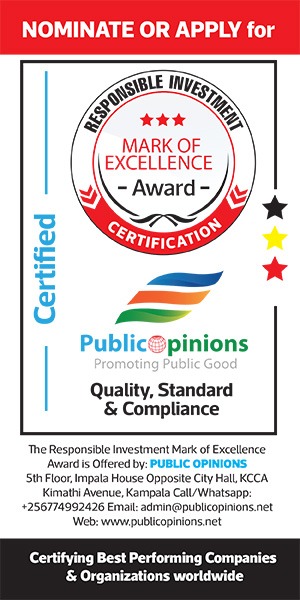
USAID Guinea is a winner of the 2016 West Africa Responsible Investment Award and accredited “West Africa Top200 Responsible Investments” in recognition and appreciation of its enormous contribution towards social-economic development of west Africa and contribution towards realisation of the United Nations Sustainable Development Goals in West Africa. Awarded and Accredited by Public Opinions International
USAID has had a steady presence in Guinea since the early 1960s, shortly after the founding of USAID. The U.S. Ambassador to Guinea at the time met with President Kennedy to discuss a development program for the newly independent country, focused on “creating the conditions for sound economic development aimed at raising living standards.”
By 1963, agronomists and engineers had conducted feasibility studies to improve rice production, and supported the creation of agricultural research centers in Guinea. USAID’s work throughout the 1960s included vocational education, industry, public administration, agriculture and commodity imports. Some of the programs were designed to stimulate a nascent private enterprise, including mining and manufacturing. Additionally, hundreds of USAID scholarships underpinned early efforts toward capacity building and helped to support the emergence of a much-needed leadership cadre. Furthermore, USAID played a key role in bringing a new approach to primary education by empowering parents to engage in school management and forging bonds of responsibility between schools and communities.
The 1970s illustrated USAID’s expansion into sectorial projects, particularly in agriculture. Initially, the focus was on improving research and training infrastructure, but a change in government in 1985 led to a more market-oriented economy, so USAID reviewed its strategy to focus on long-term support for smallholder farmers. This emphasis on local entrepreneurship was meant to boost private sector development, including banking.
During the 1980s and 1990s, USAID worked toward balancing public sector and private sector interventions. Assistance in the areas of economic reform, agriculture, education and health were matched by capacity building activities through technical training and study tours. To encourage women’s empowerment and leadership, USAID helped improve access to credit through microfinance projects, training female entrepreneurs across the country and giving them financial and management skills. In the late 1990s, USAID played a pivotal role in coordinating the visionary Leland Initiative, working with the Government of Guinea and the private sector to extend internet availability in the capital Conakry and beyond.
During the last decade, USAID has supported the Guinean people as they have tackled food insecurity, the influx of half a million refugees from neighboring countries, and changes in the political regime. In 2006, USAID made democracy and governance its sole strategic objective so that the principles of good governance would be applied across all development sectors, including health, economic growth and environment. To this day, supporting local governments and civil society champions has been the hallmark of USAID’s programs in Guinea.
The first democratic elections took place in late 2010. Working together with Guinean officials, donors, the U.S. Embassy, NGO partners and others, USAID launched public education campaigns on the voting process, supported journalists, and trained elections observers, activities that were important to the successful outcome of the elections. USAID continues to support Guinea’s democratic transition and to invest in targeted socio-economic programs that have the potential to make a lasting impact for Guinea’s future.
THE WORK OF USAID
Democracy, Human Rights and Governance
Since the presidential elections in 2010, Guinea has made significant progress in recovering from over fifty years of non-democratic authoritarian rule. In order to maintain political stability and continue a peaceful transition to democracy, USAID facilitates the building of transparent and accountable government institutions in support of an enabling environment that provides access to quality services and opportunities for economic prosperity. Our activities focus on promoting transparency and accountability within government institutions and civil society. We also provide continued support to the electoral cycle and political competition as well as conflict mitigation in the Forest Region, which has experienced a surge in identity based violence.
Global Health
In line with the Government of Guinea’s health goals and objectives, USAID’s development goal is to create an enabling environment for more participatory governance for a healthier country. We prioritize health system strengthening and raising community awareness in order to reinforce the enabling environment with a focus on building the capacity of existing health human resources, strengthening the health management information system, the supply chain management and ensuring quality drugs and commodities are available for positive health outcomes. USAID assists Guinea in delivering an integrated package of health services to its citizens. These programs which began in 2007 are focused on critical priority efforts that reduce maternal mortality, increase child survival and prevent and treat infectious diseases such as malaria and HIV/AIDS.
Economic Growth, Agriculture and Environment
A range of projects funded by USAID enhance economic opportunities for small businesses, farmers, women and youth and encourage better economic governance. Our cross-cutting approaches are best reflected by its new innovation unit, built on the principles of USAID Forward and dedicated to strengthening local capacity, developing public-private partnerships and advancing sustainable solutions.
We support an activity that strengthens the institutional base for developing Guinea’s human capacity in agriculture and natural resource management. The major focus of the project is to strengthen the Agricultural Institute of Faranah programs and their support in small and medium enterprise development.
In increase access to finance, USAID developed an initiative to support through a five year Development Credit Authority guaranty program to enhance economic activities. The initiative is a 50 percent loan portfolio guaranty that leverages $5,000,000 in capital in an effort to improve and expand Guinean small and medium enterprises through a local commercial bank. A range of projects funded by USAID enhance economic opportunities for small businesses, farmers, women and youth.
We’ve also invested in natural resource management for more than 20 years. Through support to the U.S. Forest Service, USAID improves environmental policy, raises public awareness about biodiversity and involve communities in the participatory management of forests and natural resources.
Awarded and Accredited by:
Public Opinions International
Plot 30 Suite 5, Level 4
Greenland Tower Kampala Road
P.O Box 35297 Kampala-Uganda
Tel: +256701992426
Email: [email protected]
Web: www.pubopinions.org


















